Temple Of Artemis
Deep Sleep - A Sleep Inducing Tea That Actually Works
Deep Sleep - A Sleep Inducing Tea That Actually Works
A sleep inducing blend that surrenders you into a restful, uninterrupted sleep. With its potent herbal blend, historically used as natural sedation, this tea works quickly to quiet the mind and soothe the body, ensuring you awaken rejuvenated.
Couldn't load pickup availability
- Organic Plants
- Herbalist Blended
- Science Backed
Spiritual Benefits
Spiritual Benefits
Deep Sleep Tea is more than a nightly ritual; it’s a gateway to profound restoration. By calming the mind and soothing the soul, this blend helps you release the day’s worries, fostering a deeper connection to your intuition and dreams. Wake up aligned, recharged, and ready to embrace your highest self.
Physical Benefits
Physical Benefits
Deep Sleep Tea is your ally for resetting your circadian rhythm and supporting healthy sleep cycles. Poor sleep disrupts your hormones, energy, and overall well-being—but this calming blend helps you fall asleep faster, stay asleep longer, and wake up feeling truly rested. Reclaim your vitality, one restful night at a time.
Scientific Research
Scientific Research
Together, these herbs form a powerhouse blend to help you fall asleep gently and wake up refreshed.
Hops: Known for its sedative properties, studies reveal that hops can enhance sleep quality by promoting relaxation and reducing anxiety.
Skullcap: Rich in flavonoids, this herb supports calmness by modulating GABA activity, helping to ease the mind into restful sleep.
Tulsi (Holy Basil): Renowned as an adaptogen, Tulsi reduces stress hormones like cortisol, fostering relaxation and mental clarity.
Passionflower: Shown in research to improve sleep by increasing GABA levels, which calm overactive thoughts and nervous tension.
Oat Straw & Tops: Packed with minerals like magnesium and calcium, they nourish the nervous system, aiding relaxation and stress reduction.
Wood Betony: Traditionally used to ease tension headaches and anxiety, this herb supports mental calm and physical relaxation.
Marshmallow: While primarily known for its soothing digestive benefits, marshmallow’s mucilage also calms inflammation, promoting restful sleep.
Valerian: One of the most studied natural sedatives, valerian helps improve sleep onset and quality by interacting with GABA receptors.
Product FAQ
Product FAQ
Is this tea a gentle sleep aid?
No, this is a deep sleep tea, designed to help you fall into a restful, uninterrupted slumber. It’s perfect for those who need more than just a light nudge to sleep. If you’re looking for a mild, calming effect, this might not be the right choice for you.
Who should avoid this tea?
If you tend to run hot or experience night sweats, you might find this tea a bit too warming. We recommend checking the ingredients and evaluating your personal comfort before drinking it.
Does this tea have a strong taste?
Yes, the taste of valerian is quite strong, and it can be a bit earthy or bitter. However, Valerian’s powerful sedative properties are what make this tea effective. You can add a bit of honey or stevia to balance the flavor if needed.
How long before bed should I drink this tea?
To get the best results, drink this tea 30-60 minutes before you plan to sleep. It works quickly to calm the mind and relax the body, preparing you for deep rest.
Ingredients
Ingredients
Hops · Skullcap · Tulsi · Passionflower · Oatstraw · Oat Tops · Wood Betony · Marshmallow & Valerian

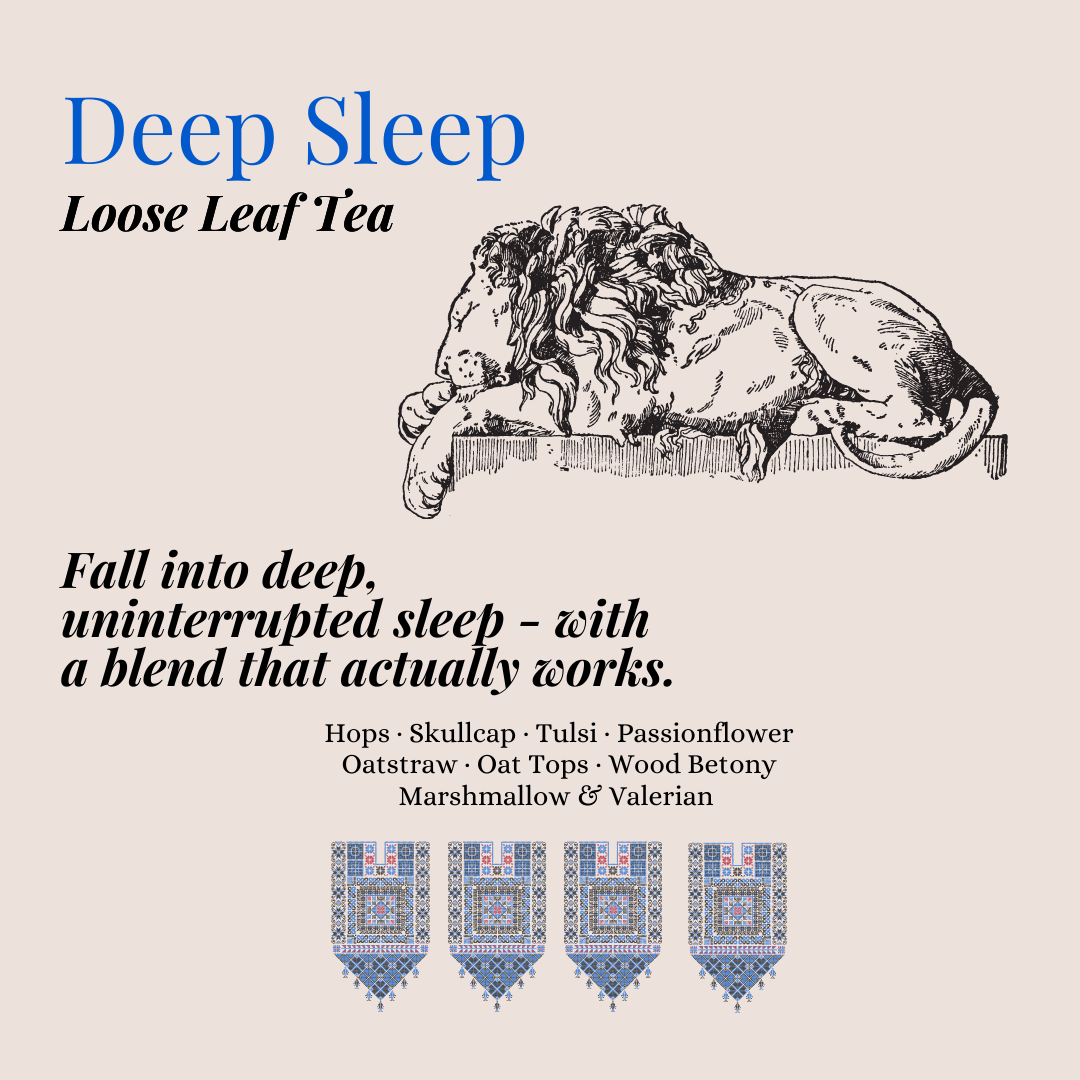
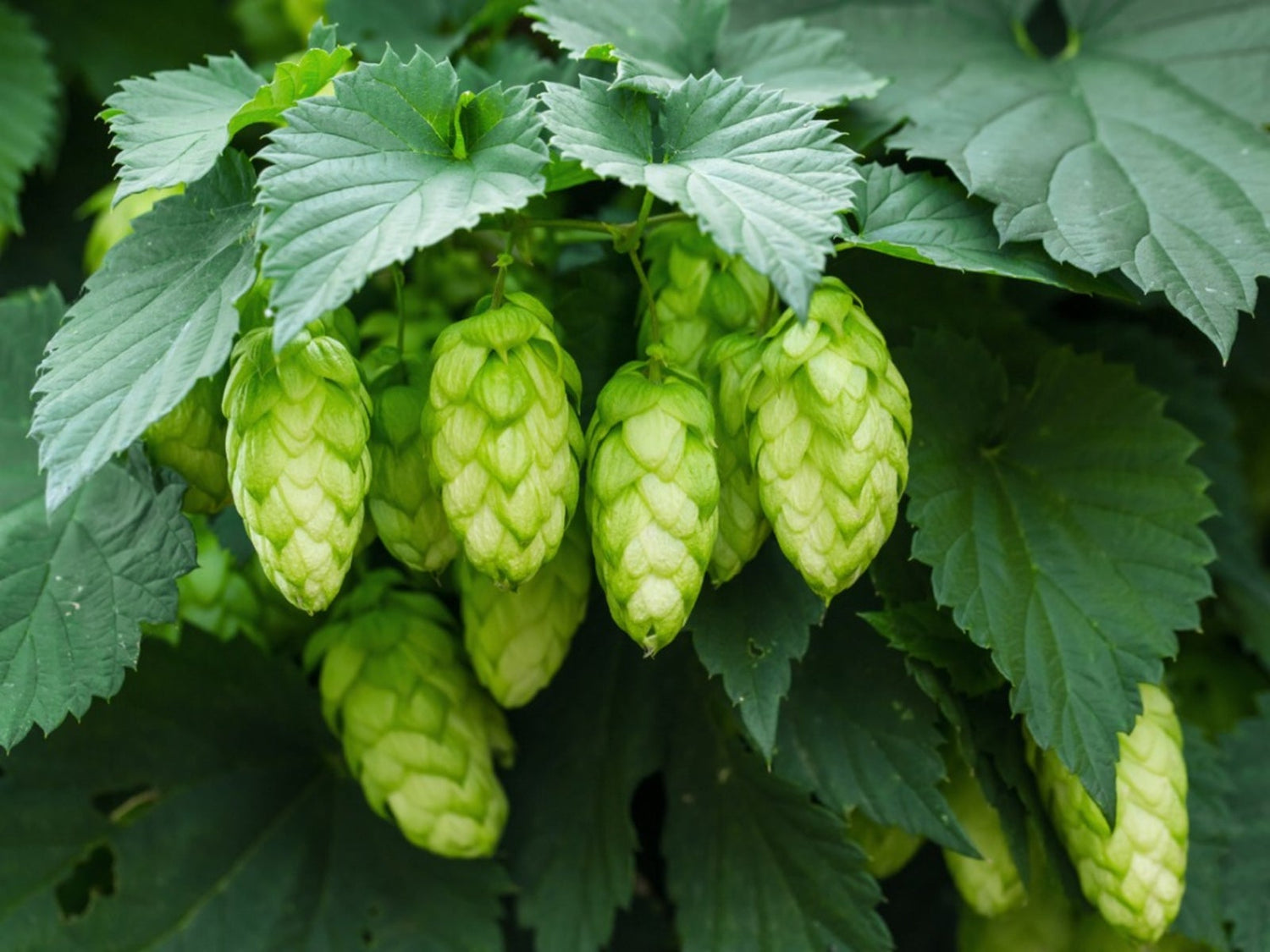
Humulus lupulus
Hops
Hops are most commonly known for their use in brewing beer, but they have a long history in herbal medicine. Historically, hops were used to treat insomnia, anxiety, and digestive issues. The flowers contain compounds that act as natural sedatives, making them useful for calming the nervous system. In addition to their sedative properties, hops also have antimicrobial and antioxidant effects. Hops were traditionally used in pillows to promote restful sleep.
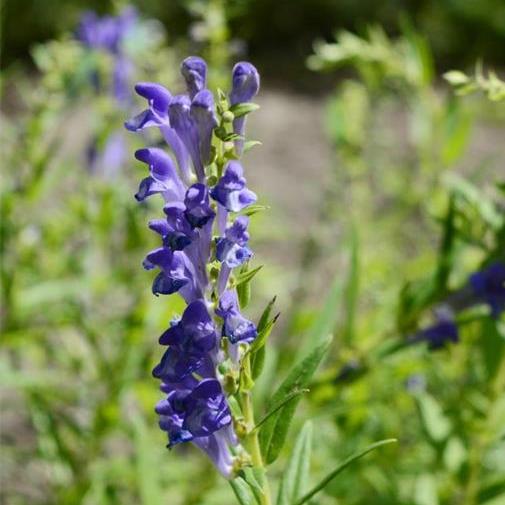
Scutellaria lateriflora
Skullcap
Skullcap is a gentle herb with a rich history in both Native American and Western herbal traditions. Traditionally, it's used to calm the nervous system, alleviate stress, and promote relaxation. Skullcap is considered a nervine, meaning it supports the nervous system, especially during times of tension. It also has mild anti-inflammatory and antioxidant properties. Skullcap’s name comes from its unique, helmet-shaped flowers that resemble a small skullcap: a key indicator that helped our ancestors realize its affinity for our minds.
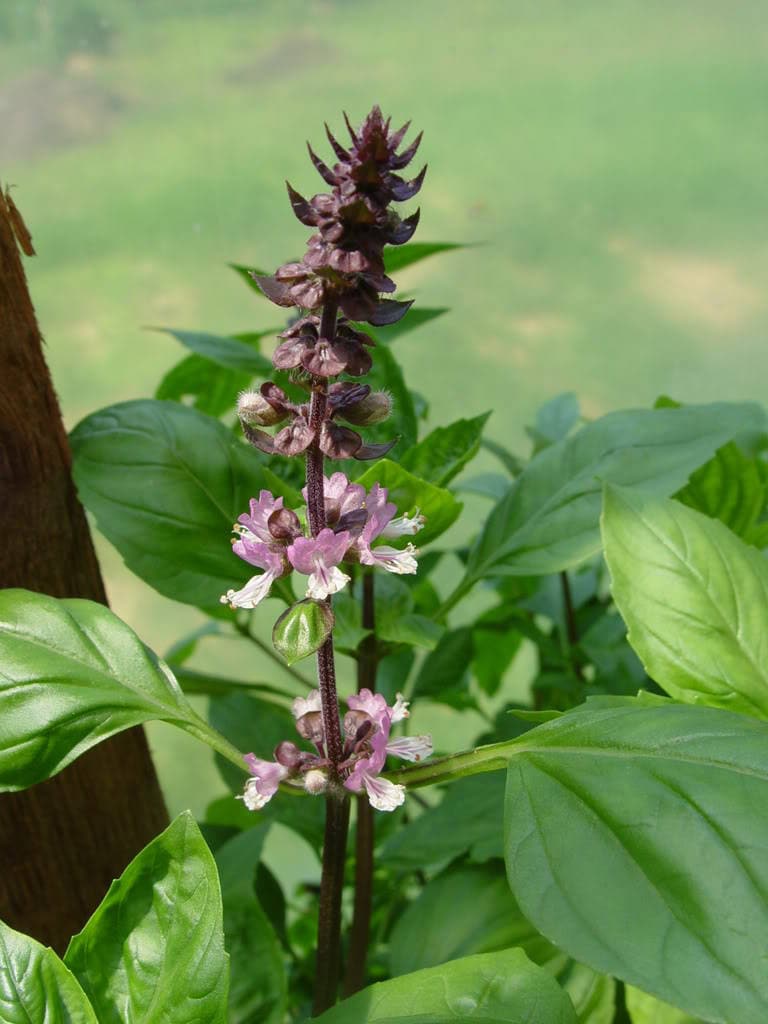
Ocimum sanctum
Tulsi
Known as "Holy Basil," Tulsi has been revered in Ayurvedic medicine for centuries for its adaptogenic properties, helping the body adapt to stress. Beyond its stress-relieving benefits, Tulsi has strong anti-inflammatory, antioxidant, and antimicrobial effects. It's believed to boost the immune system and support overall vitality. In India, Tulsi is considered a sacred plant, often found in homes and temples, where it's worshipped for its health benefits and spiritual significance of bringing one closer to divinity.
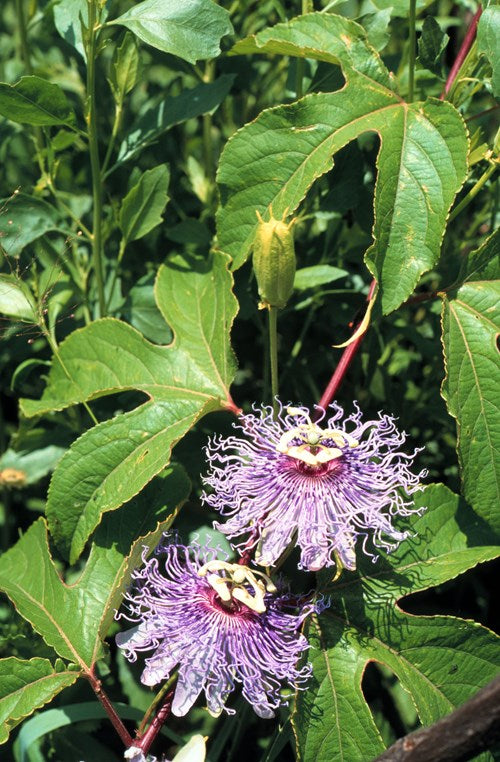
Passiflora incarnata
Passionflower
Passionflower is a flowering vine native to the Americas and is known for its calming effects on the nervous system. It's historically used as a remedy for anxiety, insomnia, and nervous disorders. Passionflower has been studied for its ability to enhance GABA activity in the brain, leading to feelings of relaxation. Fun fact: Passionflower’s striking purple flowers are said to resemble the "Passion of Christ" because of the way they were believed to symbolize elements of the crucifixion.
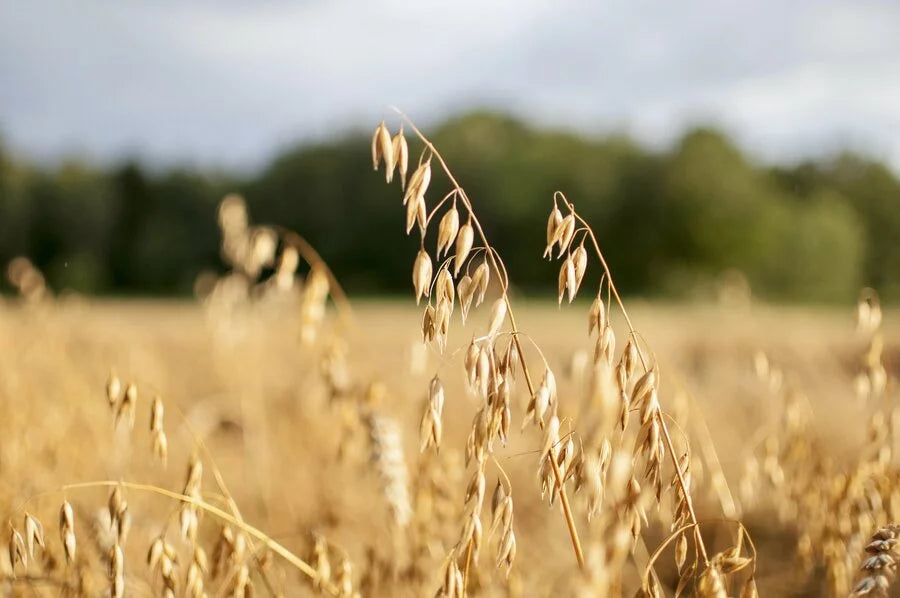
Avena sativa
Oatstraw
Oatstraw is the aerial part of the oat plant, commonly used to support the nervous system. Traditionally, it’s known for its restorative qualities, particularly in relieving stress and improving mood. It's rich in vitamins and minerals, supporting the adrenal glands and helping with fatigue. Oatstraw also has anti-inflammatory and soothing properties for the skin. Oatstraw has been used in many cultures as a tonic for overall vitality, and it was often given to livestock to ensure they had strength and stamina.

Avena sativa
Oat Tops
Oat tops are the immature seed heads of the oat plant and are often used similarly to oatstraw. They are rich in nutrients, especially B-vitamins, and are known to nourish the nervous system. Oat tops are traditionally used to support mental clarity and to provide calming effects during times of stress or emotional upset. Oat tops are considered a symbol of abundance and nourishment in many cultures, and they have a long history in supporting both human and animal health.
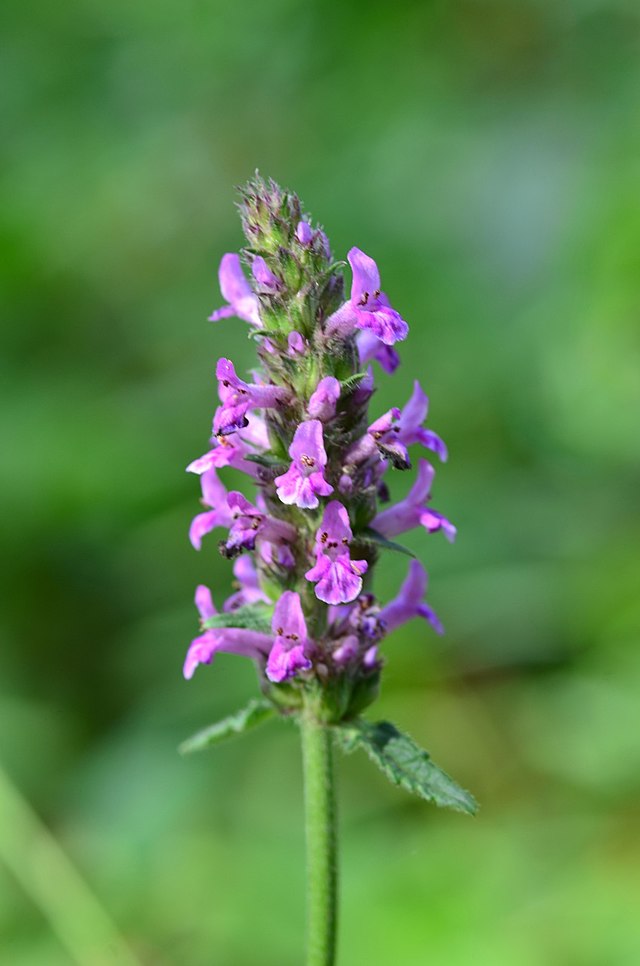
Stachys officinalis
Wood Betony
Wood Betony is a herb native to Europe, where it has been used for centuries to support overall wellness. It’s traditionally used as a mild sedative, helping to relieve stress, tension, and anxiety. Wood Betony is also known for its digestive benefits and has anti-inflammatory properties. Fun fact: In the past, it was considered a cure-all, and it was believed to possess magical properties to protect against evil spirits and to bring good fortune.
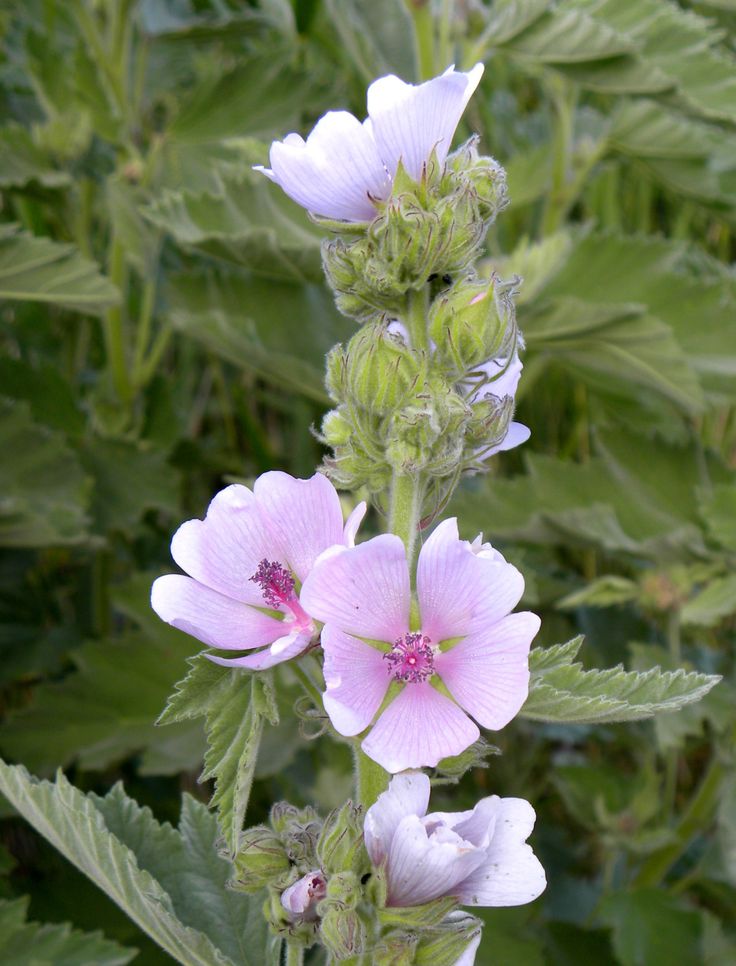
Althaea officinalis
Marshmallow
Heather has a long history in European and Celtic traditions, where it was believed to have protective and healing qualities. Heather was often used in baths, tonics, and infusions for its calming effects on both the body and mind. Fun fact: Heather is considered a symbol of good luck in folklore, and it was believed to have the ability to ward off evil spirits. It is used for its gentle calming properties, helping to ease anxiety and promote peaceful sleep. Known for its nurturing qualities, Heather is a favorite herb for restoring harmony and peace.
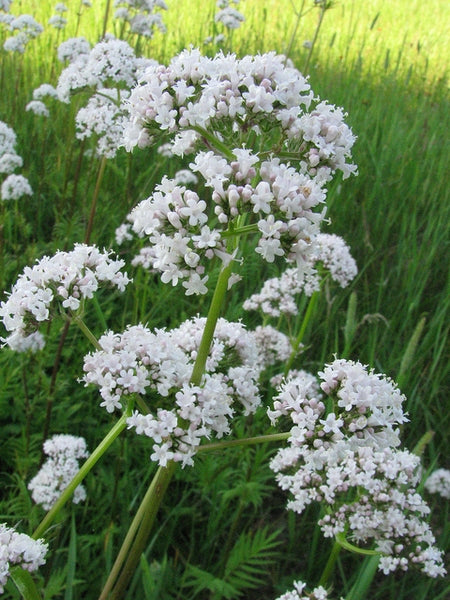
Valeriana officinalis
Valerian
Valerian root has been used for thousands of years as a remedy for anxiety, insomnia, and muscle tension. It is well-known for its calming and sedative properties, which help to promote relaxation and restful sleep. Valerian has been studied for its ability to increase GABA activity in the brain, which helps to alleviate anxiety and improve sleep quality. Fun fact: The name “Valerian” comes from the Latin word “valere,” meaning “to be strong,” due to its power as a restorative herb.


